Best Hypoallergenic Baby Formulas (2024 Guide)
This post may contain affiliate links. As an Amazon Associate, I earn from qualifying purchases. Please read my disclosure.This in-depth, parent-friendly guide will help you find and buy the best hypoallergenic baby formulas. You will learn what types of HA baby formulas are available, what ingredients to avoid in formula, and where you can reliably purchase the best hypoallergenic formula. I update this post monthly to ensure that all of the information below is recent and accurate!
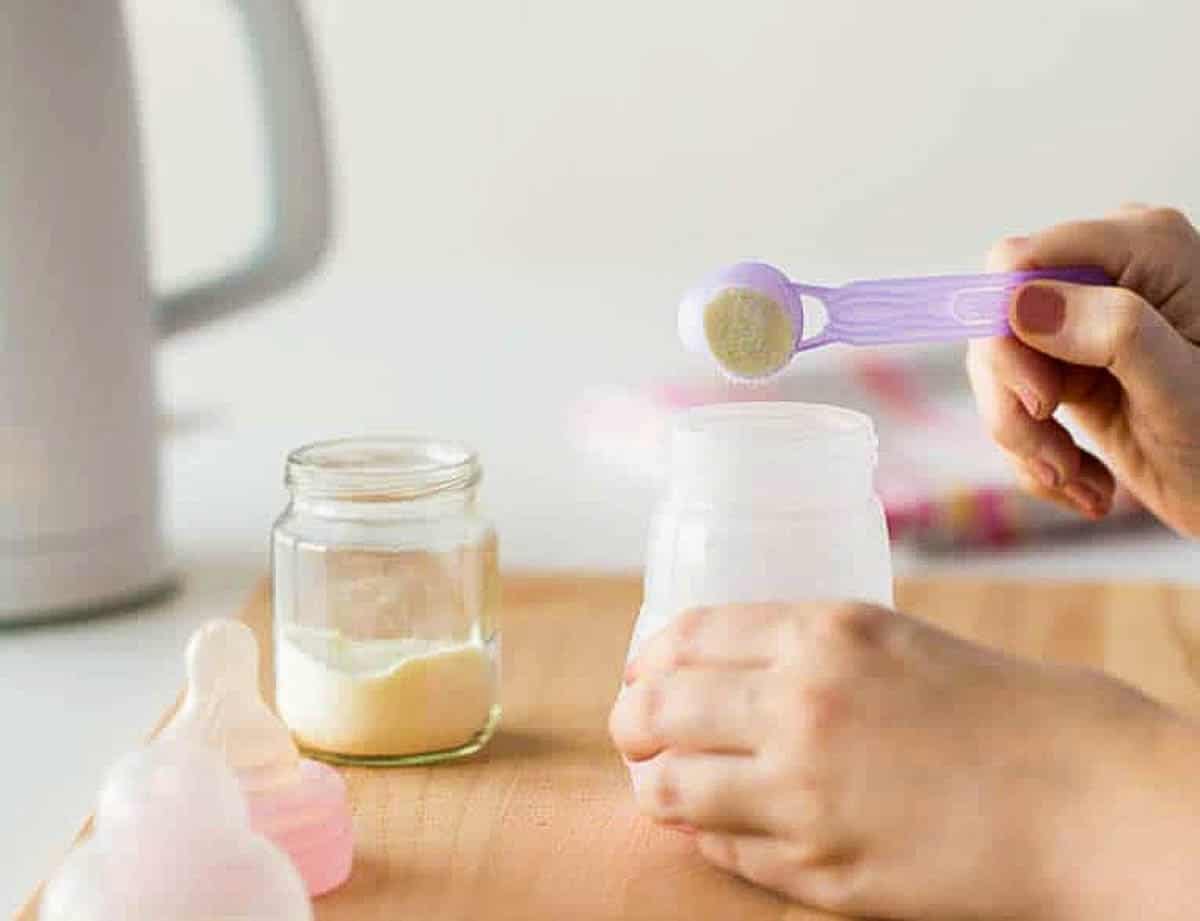
Finding the safest and healthiest formula for your baby can be a stressful process! I’ve heard from many of you that my guide to the best organic baby formula has been helpful in making that process a bit easier.
But navigating the world of hypoallergenic formulas can be even more stressful – because on top of trying to find a healthy solution, you know that your baby is getting sick from the milk protein in regular formula!
I was lucky enough to have two kids who didn’t have any allergies, but I have talked to so many moms who are frustrated with the lack of options for healthy, safe, organic, hypoallergenic baby formulas. So that’s why I created this guide, based on my extensive knowledge as a parent, certified health coach and nutritionist, and hundreds of hours working with families and researching infant formula!
A Disclaimer & Our Methodology
As a board certified health coach and certified nutritionist, I support products and ingredients that are rooted in science and are evidence-based. Using my background in nutrition, along with extensive research (see below for details), consultations with experts, and my own personal experience giving my two kids formula, I was able to arrive at this list of the best hypoallergenic formulas in this guide. This post has also been medically reviewed and fact checked by Linzy Ziegelbaum, MS, RD, CDN (see my about page for more info about Linzy).
My hypoallergenic formula recommendations are based on:
- Over 200 hours of extensive research
- Speaking with thousands of parents on what has worked for their children
- Reviewing the manufacturer’s claims and ingredients list, stages, and varieties of over 65 different formula brands
- Speaking with doctors and pediatricians
- Reviewing countless articles and peer-reviewed studies.
Though I may receive a commission (at no extra expense to you) if you purchase through some of the affiliate links provided, I only recommend products I’ve researched, evaluated, consulted experts on, and would feel comfortable giving to my own two children.
As always, I only share products that are the highest quality and that can help you and your family the most. By purchasing any of these products from the links below, you help keep this blog running, so thanks for your support!
Keep in mind that every baby & situation is different, so when it comes to choosing a baby formula, please consult with your pediatrician first before starting or switching to a new formula. My recommendations are not a substitute for professional medical advice, diagnosis, or treatment.
What Is A Hypoallergenic Formula?
A hypoallergenic baby formula is one that’s specifically designed for babies who have a cow’s milk protein allergy, who have trouble digesting cow’s milk, or have other milk or lactose sensitivities.
The reason they’re called “hypoallergenic” is because they’re made with hydrolyzed milk proteins, which are designed to minimize the risk of allergic reactions in infants. “Hydrolyzed” means that the milk proteins are broken down into smaller pieces (essentially, partially digested), which is what makes them easier for babies to digest and less likely to trigger a reaction.
This is why they’re often recommended by pediatricians or healthcare professionals when there are concerns about a baby’s ability to tolerate standard infant formula.
The extensiveness of hydrolyzed proteins needed (how broken down the proteins are) depends on how severe your baby’s allergy or intolerance is.
The American Academy of Pediatrics has strict guidelines for what constitutes a hypoallergenic formula including:
- The formula must be studied in a clinical trial
- The formula must be studied with infants who have a cow’s milk allergy
Hypoallergenic formulas are typically more expensive than regular infant formulas, and they should only be used under the guidance of a healthcare professional. If you suspect your baby has allergies or digestive issues, consult with your pediatrician or a pediatric allergist to determine the most appropriate formula for your baby’s specific needs.
What Are The Different Types Of Hypoallergenic Formulas?
Hypoallergenic baby formulas typically fall into six main categories – let’s take a look at each in detail:
Partially Hydrolyzed Formulas
These formulas contain cow’s milk proteins that have been partially broken down (hydrolyzed) into medium to smaller fragments. This makes them easier for some babies to digest and reduces the risk of allergic reactions compared to intact proteins found in regular milk-based formulas.
They are usually recommended for babies with mild to moderate allergies or digestive sensitivities, but can still trigger an allergic reaction in babies who have a more severe allergy to cow’s milk.
Extensively Hydrolyzed Formulas
These are considered truly hypoallergenic, and are meant to be tolerated by 90% of infants. They are made for infants who can’t digest or are allergic to intact cow’s milk protein. These formulas contain proteins that have been extensively broken down into very small fragments.
Because the casein (the cow’s milk protein) is in such small pieces, this further reduces the risk of allergic reactions and is often recommended for babies with severe allergies or conditions like cow’s milk protein allergy (CMPA).
Amino Acid Based Formulas
These types of formulas are 100% hypoallergenic. Amino acid-based formulas don’t contain even extensively hydrolyzed proteins or any partially whole protein molecules at all. Instead, they break down the proteins into their building blocks – called amino acids.
Because they contain individual amino acids instead of whole proteins, these are the most hypoallergenic formulas you can find. Amino acid-based formulas are the most expensive, and therefore are usually recommended for babies with severe allergies, or who cannot tolerate other types of hypoallergenic formulas.
Vegan Baby Formulas
This is an interesting, newer category on the market. Vegan baby formulas are 100% dairy free, and are made with alternative proteins like pea protein or brown rice protein. This means they contain no milk proteins at all, and may be suitable for babies with a milk protein allergy or sensitivity, provided your baby doesn’t have allergies to other foods like peas or brown rice. (Learn More: Best Vegan Baby Formula).
Soy Formulas
While these are an alternative to cow’s milk formulas, 8-14% of infants with a cow’s milk allergy will react to soy. On top of that, too much soy for infants hasn’t been studied in terms of its long term effects – so I don’t like recommending soy-based formulas, especially non-organic soy formula, for babies with a cow’s milk protein allergy.
Goat Milk Formulas
This can be a good option if your baby has a cow’s milk sensitivity vs. a diagnosed cow’s milk protein allergy. Goat milk formulas will not work for babies with CMPA, but they can work for babies who just have a milder cow’s milk sensitivity. Goat milk contains A2 casein proteins instead of the A1 proteins found in cow’s milk, which can make it easier to digest and tolerate for some babies.
For Goat Milk formulas, I’d recommend: Kendamil Goat, Kabrita USA or Holle Goat. For more details on goat milk formula, check out this guide to the best goat milk formula and this guide comparing goat milk formula vs cow milk formula.
How Do I Know If My Baby Needs A Hypoallergenic Formula?
Determining whether your baby needs a hypoallergenic formula is typically based on the guidance of a healthcare professional, such as your pediatrician or a pediatric allergist. Their assessment is based on specific symptoms that may indicate an allergy or intolerance to standard infant formula. Here are some key signs and situations that may indicate a need for a HA formula (source 1 – NIH, source 2 – American Academy of Pediatrics):
- Skin Issues: If your baby experiences symptoms of an allergic reaction after consuming regular infant formula, such as hives, eczema, rashes, swelling, etc. it could be a sign of an allergy.
- Digestive Issues And/Or Reflux: Babies with gastrointestinal issues like excessive gas, chronic diarrhea, vomiting, constipation, bloody stools, or severe reflux, may benefit from hypoallergenic formulas, as these issues can sometimes be associated with food allergies or intolerances.
- Respiratory Problems: Wheezing, coughing, or difficulty breathing may also be signs of an allergic reaction, although these symptoms can also be caused by other conditions.
- Failure To Thrive: If your baby is not gaining weight or growing as expected, it could be due to their inability to properly digest the proteins in regular formula.
- Fussiness Or Colic: While fussiness is common in babies, excessive fussiness or colic, especially after feeding, might suggest an issue with the formula.
- Family History Of Allergies: If there is a strong family history of allergies, particularly to cow’s milk protein or other common allergens, your baby may be at an increased risk of developing allergies or sensitivities.
- Continued Symptoms Despite Other Interventions: If your baby’s symptoms persist or worsen despite other interventions, such as changing your diet (if breastfeeding) or switching to a different standard infant formula, it may be an indication that a hypoallergenic formula is needed.
- Medical Diagnosis: In some cases, a healthcare professional may diagnose your baby with a specific condition, such as cow’s milk protein allergy (CMPA), which often requires the use of hypoallergenic formula as part of the treatment plan.
Features And Ingredients To Look For When Choosing A HA Formula
When choosing a hypoallergenic formula for your baby, you should look for formulas that are specifically designed to be hypoallergenic and have the cleanest ingredients list possible.
Keep in mind that since HA formulas have broken down milk proteins and also tend to have reduced lactose, they often have to add in another carbohydrates to meet the nutritional requirements for infants.
Because of that, it’s nearly impossible to find an HA formula that is “perfect” – e.g. that has zero additives and zero added sugars or starches, but the key is to look for the formulas that minimize the use of fillers and really tend towards all-natural ingredients as much as possible. Here are some key ingredients and features to consider when selecting a hypoallergenic formula:
✅ Certified Organic (either USDA or EU Certified) or at least Non-GMO
✅ Meets nutritional standards for babies (in the US or the EU) and includes key vitamins and minerals for development (Note: requirements are different in the US and EU for both iron and DHA).
✅ No sugar, sucrose, or syrup solids (or minimal use)
✅ Includes Omega 3 Fats (DHA, ALA) and Omega 6 fatty acids (ARA, LA)
✅ Includes prebiotics and probiotics (Learn More: Prebiotics For Kids)
✅ Gluten free, soy free (with the exception of organic soybean oil, and organic soy lecithin, which is ok)
✅ Palm oil free (or uses palmitic acid, or sustainable palm oil. Learn more: Palm Oil In Baby Formula)
✅ No carrageenan
✅ No maltodextrin
✅ Mixes easily, and with a taste babies can tolerate (based on reviews)
✅ Suits your budget
Ingredients To Avoid
❌ Processed Refined Sugars (Syrup, Syrup Solids): Corn syrup solids (glucose syrup solids), sugar, or brown rice syrup.
❌ Maltodextrin Or Other Added Starches: A partially hydrolyzed starch derived from corn, rice, or potatoes.
❌ Carrageenan: Typically added as a stabilizer to ready-to-feed formula in the US; it is not allowed in the EU and has been linked to intestinal inflammation.
❌ Palm Oil: to mirror the levels of palmitic acid, which is found in breastmilk, some manufacturers add palm oil. The problem is that palm oil in formula does not act the same way that palmitic acid does in the baby’s gut. Palm oil reacts with calcium, and causes the formation of “soaps” in the baby’s intestines (which can cause digestive issues). Palm oil is in most formulas (EU & US), but more manufacturers are now making formula without it.
❌ GMO Ingredients: Ingredients that are GMO may have had the use of pesticides or antibiotics during the growing process.
❌ Soy: Soy protein (and soy formula) are problematic for infants because of their phytoestrogen content (check out this study about soy).
Below, I have listed the best hypoallergenic baby formula on the market today, followed by more details on each. Click on the formula name to go to the best online retailer of the formula.
The Best Hypoallergenic Baby Formulas
While no hypoallergenic formula is perfect, the hypoallergenic baby formulas below are considerably better than the rest. You can click on the formula name in the table below to find the best online retailer of the formula. We have organized the formula by type, from partially hydrolyzed to extensively hydrolyzed, and have included more alternative formula options (vegan, goat milk, etc) as well!
Partially Hydrolyzed Formulas
These formulas are all partially hydrolyzed, which means their milk proteins are broken down but are still detectable for babies with severe allergies. We have listed these formulas in order of preference, based on their ingredients, since all of them are about the same in terms of hydrolyzation.
HiPP HA PRE
HiPP HA formula comes in 3 stages: Stage PRE, Stage 1, and Stage 2. Besides the age ranges these stages are designed for, there are slight differences in ingredients as well, so we have listed them separately here. HiPP German Stage PRE formula is a complete nutrition suitable for infants from birth up to six months of age and specifically designed hypoallergenic with extensively hydrolyzed whey protein (86-87% broken down). It doesn’t contain casein (100:0 ratio), but it does not have a reduced lactose content. The main difference between HA PRE and HA Stage 1/2 is that PRE has no starch added.
Try This Formula If: Your baby has a cow’s milk allergy or sensitivity and you haven’t tried another hypoallergenic option (or you’re trying to move away from the US hypoallergenic options because of concerns over ingredients). Has extensively hydrolyzed protein, (86-87% broken down), 100% whey (no casein), no starch, but with the same lactose content as a non-hypoallergenic baby formula.
Cost: $42.99 for a 600 gram box.
For any of the Dutch or German formulas, their labels may not always come with an English translation, so we have partnered with Bottles & Burps to provide you with detailed guides for all of the non-UK based hypoallergenic baby formulas! Here is the guide for HiPP HA PRE – for translated nutritional labels, ingredients and preparation instructions so it’s easy to compare to any US based formulas.
You can also get 20% off any single pack at Bottles & Burps using the code PICKYEATER20! (just enter it manually in the checkout process!)
Pros
Cons
HiPP HA Stage 1
HiPP hypoallergenic formula (Stage 1) is meant for babies aged 0-6 months, and is nutritionally similar to HiPP PRE. Note that all European hypoallergenic formulas and US hypoallergenic formulas contain hydrolyzed milk proteins, which cannot be certified as organic due to strict EU regulations. However, all the other ingredients in HiPP HA (for all stages) are organic. Just like HiPP PRE, this Stage 1 HA formula has extensively hydrolyzed whey protein (86-87% broken down), no casein, and a regular lactose content.
Try This Formula If: Your baby has a cow’s milk allergy or sensitivity, you want a formula that you can use up to 6 months of age, and you haven’t tried another hypoallergenic option (or you’re trying to move away from the US hypoallergenic options because of concerns over ingredients).
Cost: $39.99 for a 600 gram box.
Translated Nutritional Information: HiPP HA Stage 1
Pros
Cons
HiPP HA Stage 2
HiPP HA Stage 2 is designed for babies aged 6 months and older, and can be used on its own as a breast milk substitute or a supplement for breastfeeding. Like HiPP HA Stage PRE and Stage 1, Stage 2 also uses lactose as the primary carbohydrate and has the same amount of lactose as regular formulas. It is also 86-87% hydrolyzed, with no casein. If your baby has been doing well on HiPP HA Stage 1, it makes sense to transition to Stage 2 once your baby turns 6 months old.
Try This Formula If: Your baby is over 6 months of age, has a cow’s milk allergy or sensitivity and you haven’t tried another hypoallergenic option or are moving up from HA Stage 1 (or you’re trying to move away from the US hypoallergenic options because of concerns over ingredients).
Cost: $40.99 for a 600 gram box.
Translated Nutritional Information: HiPP HA Stage 2
Pros
Cons
HiPP HA Dutch (Stage 1 & 2)
HiPP HA now comes in its Dutch formulation! Ingredients wise, it’s basically identical to the HiPP German HA formula, now that the German HA formula doesn’t include starch. The main difference is that the Dutch formulation comes in a larger, stackable container (vs. the smaller cardboard box for the German version). Stage 1 is suitable for babies aged 0-6 months, Stage 2 is for babies 6-12 months.
Try This Formula If: Your baby has a cow’s milk allergy or sensitivity and you haven’t tried another hypoallergenic option and you want a starch-free higher protein HA formula. Has extensively hydrolyzed protein, (86-87% broken down), 100% whey (no casein), and the same lactose content as a non-hypoallergenic baby formula.
Cost: $62.99 for an 800 gram can.
Translated Nutritional Information: HiPP Dutch HA Stage 1, HiPP Dutch HA Stage 2
Pros
Cons
Bobbie Organic Gentle Infant Formula
Bobbie Organic Gentle Formula is the first USDA and EU Organic sensitive formula made with 100% lactose carbohydrates. It contains partially hydrolyzed milk proteins, no synthetic ingredients, and is the most affordable gentle formula I’ve found on the market today!
Try This Formula If: You need a gentle cow’s milk formula for your baby, and your baby doesn’t have a diagnosed cow’s milk protein sensitivity or allergy. Bobbie Organic Gentle Formula is the only US-manufactured tolerance infant formula designed for infants with fussiness, gas and crying that is formulated to support easy digestion, with 100% partially hydrolyzed whey as the protein source and 100% lactose as the carbohydrate source, like that found in breast milk. Bobbie Gentle Formula is not hypoallergenic, according to US requirements, but is similar to EU hydrolyzed formulas which are considered hypoallergenic by EU standards. It is also palm oil free and does not have any soy allergens.
Cost: $28 for a 400 gram can.
Pros
Cons
Extensively Hydrolyzed Formulas
We have listed these formulas in order of least hydrolyzed (86% with HiPP Comfort) to most hydrolyzed (100% with Gerber HA). Each of these formulas have different pros and cons, which is why we haven’t listed them in order of recommendation – since each one could be the best fit for your baby depending on their needs.
HiPP Comfort
HiPP Comfort is most similar to a US extensively hydrolyzed hypoallergenic formula. While it’s similar to HiPP HA in that it contains 86-87% hydrolyzed milk proteins and no casein, it’s even more allergen friendly because it has a reduced lactose content and modified fats for even easier digestion. (Learn More: Lactose Free Baby Formula).
HiPP Comfort just has “one stage” in that it’s suitable for babies aged 0-12 months! While HiPP Comfort formula cannot be certified as organic because the hydrolyzed milk protein is not available in organic form, the majority of the other ingredients in this formula are organic, and all ingredients are non GMO.
What’s interesting about HiPP Comfort is that while, in formulation, it is the closest to a US hypoallergenic formula and is more broken down than HiPP HA, it’s technically not labeled as a hypoallergenic formula in the EU for regulatory reasons. Comfort is typically indicated for gassiness, colic and constipation. (Learn More: Best Formula For Gassy Babies). We do, in practice, find that parents seeking a “hypoallergenic” formula have been successful with Comfort. So for those who have babies with sensitive tummies, or who react to both whey and casein, this may be the baby formula for you!
Try This Formula If: Your baby has a cow’s milk allergy or sensitivity and HiPP HA hasn’t worked. You can also go straight to this formula if your baby’s symptoms seem more severe, since this formula is going to be more gentle than the HA formulas listed above.
Cost: $39.99 for a 600 gram box.
Translated Nutritional Information: HiPP Comfort
Pros
Cons
Alimentum® Ready to Feed
All of the US hypoallergenic formulas are more extensively hydrolyzed than the European options listed above (HiPP HA and HiPP Comfort). Common extensively hydrolyzed formulas in the US include Alimentum® or Nutramigen®, which are about 93% hydrolyzed. The ready to feed versions have slightly different ingredients than the powdered versions so we have listed them separately here. But if your baby tolerates HA or Comfort I would choose those over Alimentum/Nutramigen given that the ingredients list is cleaner. However, if HA or Comfort don’t work, then you have to move to a more hydrolyzed formula like the US options listed here.
Try This Formula If: Your baby has a cow’s milk protein allergy, HiPP HA and Comfort have not worked, and you are looking for an option with less sugar (and you’re not as concerned about carrageenan). RTF Alimentum includes carrageenan, powdered Alimentum does not. Carrageenan is a food stabilizer and thickener which can cause inflammation in the body. Between the two versions of Alimentum it’s a tradeoff with more sugar and no carrageenan vs. less sugar and added carrageenan.
Cost: $66.86 for a pack of (6) 32 fluid oz bottles.
Pros
Cons
Similac Alimentum® (Powdered)
Similac Alimentum® powdered formula is very similar to the ready to feed formula with just a slight difference in certain stabilizing ingredients and the amount of sugar included. This version is also extensively hydrolyzed (93%) making it suitable for babies with cow’s milk protein allergies or lactose sensitivities.
Try This Formula If: Your baby has a cow’s milk protein allergy and/or HiPP HA and Comfort have not worked, and you prefer a powdered formula vs. ready to feed. Keep in mind the powdered version has much higher sugar, but no carrageenan compared to the RTF version.
Cost: $36.49 for a 12.1oz can
Pros
Cons
Nutramigen® Ready to Feed
Enfamil Nutramigen is very similar to the RTF version of Alimentum with the exception of prebiotics (Alimentum has it, but the RTF version of Nutramigen does not). However, the ready to feed version of Nutramigen does contain way less sugar than the powdered version, and is extensively hydrolyzed so it’s suitable for babies with cow’s milk protein allergies or lactose intolerance.
Try This Formula If: Your baby has a cow’s milk protein allergy, HiPP HA and Comfort have not worked, you are looking for an option with less sugar, you’re not as concerned about carrageenan, and you can’t find the RTF version of Alimentum.
Cost: $102 for a (6) pack of 32oz bottles.
Pros
Cons
Enfamil Nutramigen® (Powdered)
The powdered version of Nutramigen is almost identical to the powdered version of Alimentum. They are pretty interchangeable and have similar pros & cons. It’s 93% hydrolyzed, works for CMPA or lactose intolerance. In clinical studies, infants showed improvement after just 48 hours of being on this formula. (Learn More: HiPP HA vs. Nutramigen).
Try This Formula If: You have tried HiPP HA and HiPP Comfort and neither have worked, and/or your baby has a cow’s milk protein allergy. Also worth trying if you can’t find the powdered version of Alimentum, as this is a very similar formula.
Cost: $37.80 for a 12.6oz can
Pros
Cons
Gerber Extensive HA
This formula is 100% hydrolyzed, so it’s even more broken down than Alimentum / Nutramigen, and is the most extensively hydrolyzed formula I’ve found on the market today. It contains 100% whey protein broken down into tiny pieces designed to be well-tolerated by most babies with CMPA and ultra-filtered for low residual allergenicity. It’s also a lactose-free formula, so it covers most milk related allergies out there! It also happens to be Non-GMO – which is a huge plus since most US hypoallergenic formulas are not.
Try This Formula If: You need a 100% extensively hydrolyzed formula. You have tried HiPP HA and HiPP Comfort and neither have worked, and your baby has a cow’s milk protein allergy.
Cost: $32.29 for a 14.1 oz can.
Pros
Cons
Amino Acid Based Formulas
There are really only two amino acid based formulas in the US, and they’re pretty equivalent in terms of ingredients. The main issue with both has been availability and price, so if your pediatrician has recommended an amino acid based formula, your best bet is to just choose the one that’s most budget friendly and easy to find! Additional considerations are – picking the one your baby tolerates the most and the one that tastes the best.
Neocate®
Neocate® is 100% hypoallergenic and is made up of amino acids exclusively. It is considered a medical food, and should only be used under the supervision / recommendation of your child’s pediatrician. In clinical studies, Neocate® has been shown to reduce allergic reactions and CMPA symptoms within 3-14 days.
Try This Formula If: Your pediatrician has specifically suggested that you use an amino acid based formula and/or you have tried the other formulas on this list and your baby is still having digestive issues (indicative of a more severe cow’s milk allergy).
Cost: $44.5 for a 14.1 oz can
Pros
Cons
EleCare®
EleCare® is a hypoallergenic, amino acid based formula, similar to Neocate®. It is made with 100% free amino acids as the protein source for infants who cannot tolerate intact or hydrolyzed protein.
Try This Formula If: Your pediatrician has specifically suggested that you use an amino acid based formula and/or you have tried the other formulas on this list and your baby is still having digestive issues (indicative of a more severe cow’s milk allergy).
Cost: $43.69 for a 14.1 oz can.
Pros
Cons
Vegan Baby Formulas
There are only a couple of high quality, organic, vegan formulas that are suitable for infants on the market today. These are our top 2 picks for dairy free baby formulas that may work for an infant with a milk protein allergy. You can see all of the options for vegan baby formulas in our linked guide!
Bebe M Stages 1-3
Bebe M (Bebe Mandorle) Organic Rice-Based Infant Formula is 100% organic, and suitable from birth until 12 months of age (Stage 1 is from 0-6 months, Stage 2 from 6-9 months, Stage 3 from 10 months – 3 years of age!).
It uses 100% plant-based ingredients that are tightly regulated by the EU, designed to meet the nutritional requirements for babies. It is made from an organic rice protein hydrolysate, which makes it a dairy-free formula that’s vegan friendly, but is also suitable for babies with dairy allergies or lactose intolerance. It also contains no palm oil and has a super clean ingredients list! (Learn more: Palm Oil In Baby Formula).
Try This Formula If: Your baby seems to have a cow’s milk allergy, and you want to try an organic formula to meet your baby’s nutritional requirements, and your baby doesn’t have an allergy to brown rice proteins.
Note: This product is labeled as “Foods for special medical purposes (FSMPs)” and should be only given under medical supervision. Please consult your pediatrician before introducing this formula to your baby.
Cost: $64.99 for a 600 gram can.
Pros
Cons
Premibio® Organic Vegan Stages 1-3
Premibio® Organic Rice-Based Infant Formula is 100% organic, and suitable from birth until 12 months of age (comes in 3 stages, just like Bebe M above).
This is a lactose-free and vegan formula based on hydrolyzed rice protein, and is also gluten-free and palm oil free. It uses 100% plant-based ingredients, and meets the nutritional requirements for babies for growth and development. Because it is dairy free, it can be suitable for babies with a lactose or cow’s milk allergy.
Try This Formula If: Your baby seems to have a cow’s milk allergy, and you want to try an organic formula to meet your baby’s nutritional requirements, you want a cheaper alternative to Bebe M, and your baby doesn’t have an allergy to brown rice proteins. Please consult your pediatrician before introducing this formula to your baby.
Cost: $49.99 for a 600 gram can.
Pros
Cons
Goat Milk And A2 Protein Formulas
There are quite a few different goat milk and A2 milk protein formulas on the market today. We have just short listed the top 5 here, but you can learn more about goat milk formulas and A2 baby formulas in our linked guides. These can be good options for babies with a mild cow’s milk sensitivity, but not a diagnosed cow’s milk protein allergy (as babies with a severe allergy may still react to goat milk proteins).
Jovie Goat Milk Formula
A great option for a goat milk formula, Jovie is made in the Netherlands, and is committed to producing high quality, 100% organic whole goat milk formulas that meets babies and toddlers nutritional needs. Since it’s made with whole goat milk, it contains only A2 casein milk protein, which is easier to digest for babies and may be less reactive for infants with sensitive digestive systems. Comes in 3 stages – Stage 1 is from birth to 6 months, Stage 2 from 6-12 months of age, and Stage 3 for age 1+.
Try This Formula If: Your baby has a cow’s milk sensitivity, but not a diagnosed cow’s milk allergy. Goat milk formula is easier to digest because goat milk has A2 milk protein (vs A1 which is in cow’s milk and is harder to digest).
Cost: $63.99 for an 800 gram can.
Pros
Cons
Kendamil Goat
Kendamil uses whole goat milk instead of skimmed milk. It also has no palm oil, no soy, no added sugars, and is 100% vegetarian – uses plant based DHA/ARA with NO hexane extraction. Contains prebiotics and has a whey:casein ratio that mimics breastmilk for easy digestion. Is technically not organic, but is non-GMO and has Red tractor certified ingredients. This means Kendamil follows rigorous production standards and the farms they obtain their goat milk from do not use growth hormones or antibiotics. Formulated especially for infants, with 3 different stages to accompany your baby from infancy to their toddler years. It’s also available in the US for purchase at Target!
Try This Formula If: Your baby has a cow’s milk sensitivity, but not a cow’s milk allergy, and you want to try a formula that has A2 milk proteins for easier digestion.
Cost: $65.99 for an 800 gram can.
Pros
Cons
Kabrita USA
Kabrita USA is technically a toddler formula, but it does meet the nutritional requirements of infant formula (so just make sure your pediatrician is comfortable with you using it). Kabrita USA also has a super clean ingredients list, it contains no added sugars, no maltodextrin, no syrup solids and has the right composition of essential fatty acids to be gentle for babies’ tummies to digest. It’s also one of the more affordable options for goat milk formula. Lastly, Kabrita is offering 10% off all orders with the coupon code GENTLEKABRITA! (Note: Kabrita does have an infant formula as well that also has a clean ingredients list. Their infant formula has to be shipped from Europe while their toddler formula is available for sale in the US).
Try This Formula If: Your baby has a cow’s milk sensitivity, but not a cow’s milk allergy. Goat milk formula has been a good option for babies with a cow’s milk sensitivity. But if your baby has a diagnosed cow’s milk protein allergy, they may have an issue with goat milk protein as well. You should also make sure your pediatrician is ok with you using Kabrita for your baby before you start this (or any other) formula, especially since Kabrita is technically a toddler formula.
Cost: $19.99 for a 14oz (400 gram) can.
Pros
Cons
Holle A2
Holle organic A2 formula comes in multiple stages to grow with your baby. It’s certified organic by the EU, non-GMO, uses A2 skimmed milk (organic nonfat milk) which may be easier for babies to digest. Holle A2 cow milk formula is created from 99% organic ingredients and has no added sugars. Babies who have trouble digesting regular formula (made with A1 cow’s milk) may do better on A2 cow’s milk. The A2 beta-casein protein type is typically easier to digest than A1 milk proteins (which is the more common protein found in cow’s milk) This formula allows babies to continue drinking cow’s milk but without the protein that causes the discomfort. Contains DHA, but does not contain prebiotics or probiotics.
Try This Formula If: Your baby has an A1 casein allergy, but not a cow’s milk protein allergy, and you don’t want to try a goat’s milk formula.
Cost: $32.99 for a 400 gram box.
Pros
Cons
Are European Hypoallergenic Formulas Better Than US Formulas?
In this guide we have listed both European hypoallergenic formulas and US options – since some of the most allergen friendly formulas (e.g. amino acid formulas) are made in the United States. However, in general, the best hypoallergenic formulas with the most all natural ingredients are the European options. Here’s what makes the European formulas better than most US HA formulas:
- No processed or refined sugars (syrup, syrup solids, maltodextrin, sugar, brown rice syrup, etc).
- Limited use of vegetable oils and less healthy fats
- They taste much better than the US hypoallergenic formulas! US hypoallergenic formulas are notorious for tasting and smelling bad – and that can make it even more challenging to get your baby to drink them. But because European formulas are made with whole food and minimally processed ingredients, they are usually well tolerated by babies in terms of taste and smell.
- They’re pretty comparable in price, and can be easier to find than some of the US formulas.
Are The US Formulas Really That Bad?
Unfortunately yes, the US formulas rely on cheaper ingredients like maltodextrin and syrup solids in order to meet the requirements for essential nutrients for babies. Even if you just look at the sugar content and ignore the highly processed ingredients, these formulas do have some less-ideal ratios. Look at the ingredients from some of the most popular brands – and you’ll see that over 50% of the ingredients are literally just sugar. That’s just like spoon feeding your infant table sugar! It’s ridiculous. While there are two options without a high amount of sugar (Nutramigen® and Alimentum® ready to feed versions), they both have carrageenan added, which is also not ideal.
Here are the ingredients list for the powdered versions of 3 of the most popular US HA formulas:
- Alimentum®: Corn Maltodextrin (35%), Casein Hydrolysate [Derived from Milk] (18%), Sugar (15%), High Oleic Safflower Oil (10%), Medium-Chain Triglycerides (10%), Soy Oil (8%).
- Neocate®: Corn Syrup Solids (51%), Refined Vegetable Oil (Medium Chain Triglycerides (8%), High Oleic Sunflower Oil (6%), Sunflower Oil (4%), Canola Oil (4%)), Fructooligosaccharides (Oligofructose (4%), Inulin (0.5% )
- Nutramigen®: Corn Syrup Solids (48%), Vegetable Oil (Palm Olein, Coconut, Soy, and High Oleic Sunflower Oils) (26%), Casein Hydrolysate (Milk) (16%)*, Modified Corn Starch (4%)
If you compare that to the Ingredients in HiPP Comfort or the Ingredients in HiPP HA – you’ll see that there is zero added sugar for both of these formulas!
So if your little one is allergic to cow’s milk protein, I’d definitely recommend trying HiPP Comfort or HiPP HA before any of the US based hypoallergenic formulas. However, if your baby doesn’t tolerate HiPP, you will have to use the US formulas and potentially even the US amino acid formulas.
As for where to purchase these formulas, I’m in personal contact with the owners of all of these companies: The Milky Box, Baby Milk Bar, Bottles and Burps, Organic Formula Shop, Organic’s Best, and Organic Baby Food, and I feel comfortable recommending them to you as options!
Note: If you are looking for more information US baby formulas and you don’t need a hypoallergenic option, I’d recommend looking at this post on the best baby formula made in the US.
FAQs
Talk to your pediatrician first! Don’t start experimenting with formulas until you have a diagnosis from your pediatrician, and the green light to try whichever formula you decide to go with. Once you and your child’s pediatrician have come up with a treatment plan, then you can introduce a hypoallergenic formula.
Potentially yes, but you should never switch formulas before talking to your child’s pediatrician first. Many babies do outgrow their allergies, cow’s milk protein included, so it is possible that after a while your baby may not need a HA formula anymore. But you will need your baby’s pediatrician to evaluate their condition first before making a recommendation on switching.
Typically, many parents may notice a change within 48-72 hours. However, it can take anywhere from 48 hours to 2 weeks for all of your baby’s symptoms to dissipate.
Final Thoughts
Finding the right formula for your baby can be a bit of a process. But I hope this post helped you navigate finding best hypoallergenic baby formula – based on the options available on the market today.
Ultimately, the most important thing is that your baby is fed, happy, and healthy. And switching to a HA formula can make your and your baby’s life a lot easier, by alleviating their digestive symptoms, colic, or other allergic reactions!
As with any formula, make sure to consult your baby’s doctor before switching formulas or introducing a new formula to your baby. And if you have any questions, don’t hesitate to leave a comment or contact me here – I respond to every message I get!
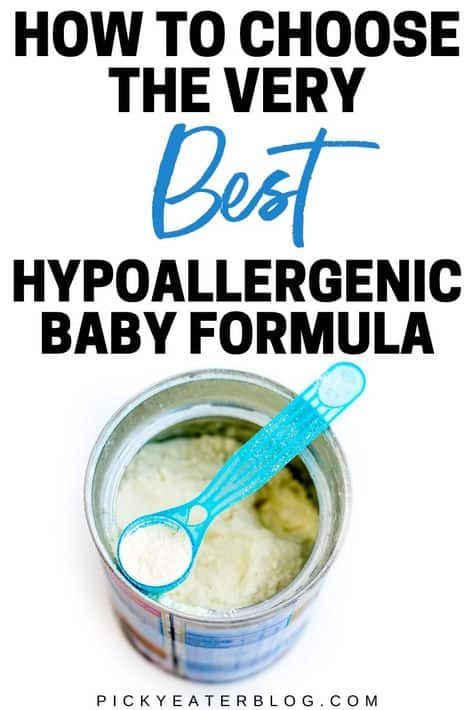



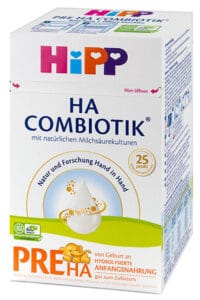
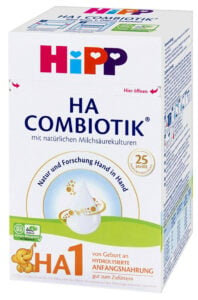
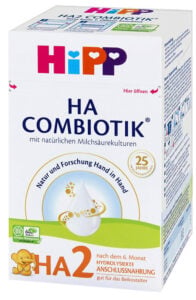
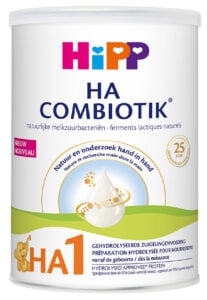
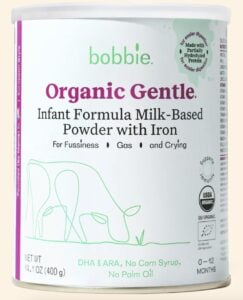
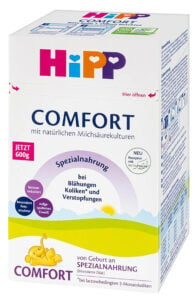
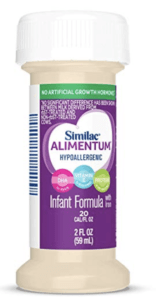
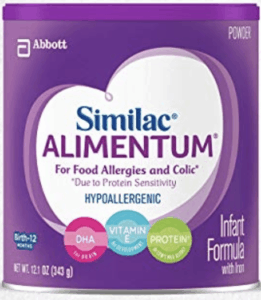
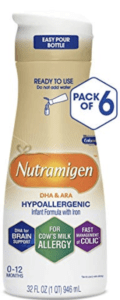
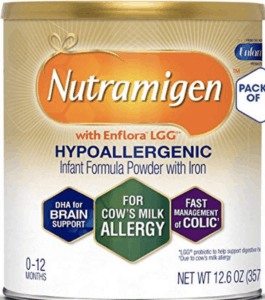
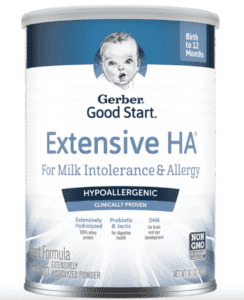
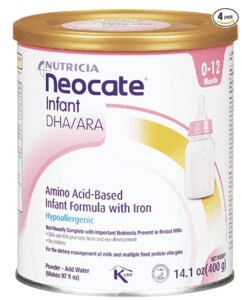
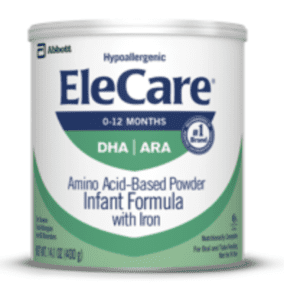
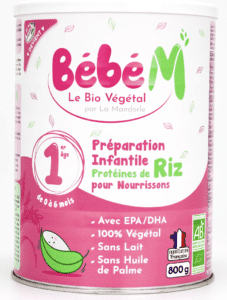
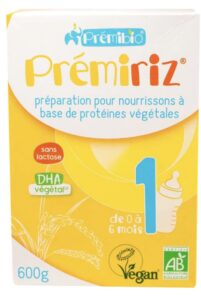
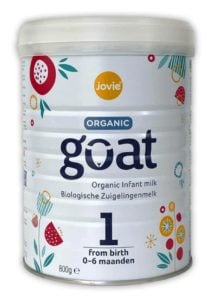
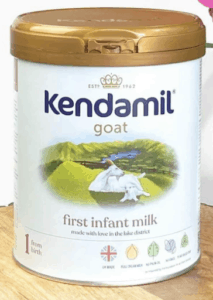
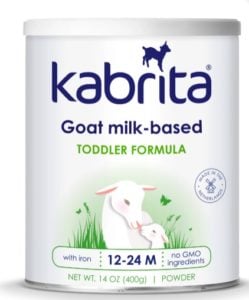
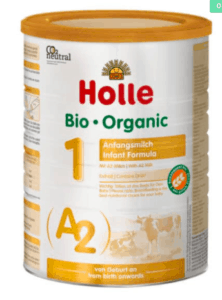
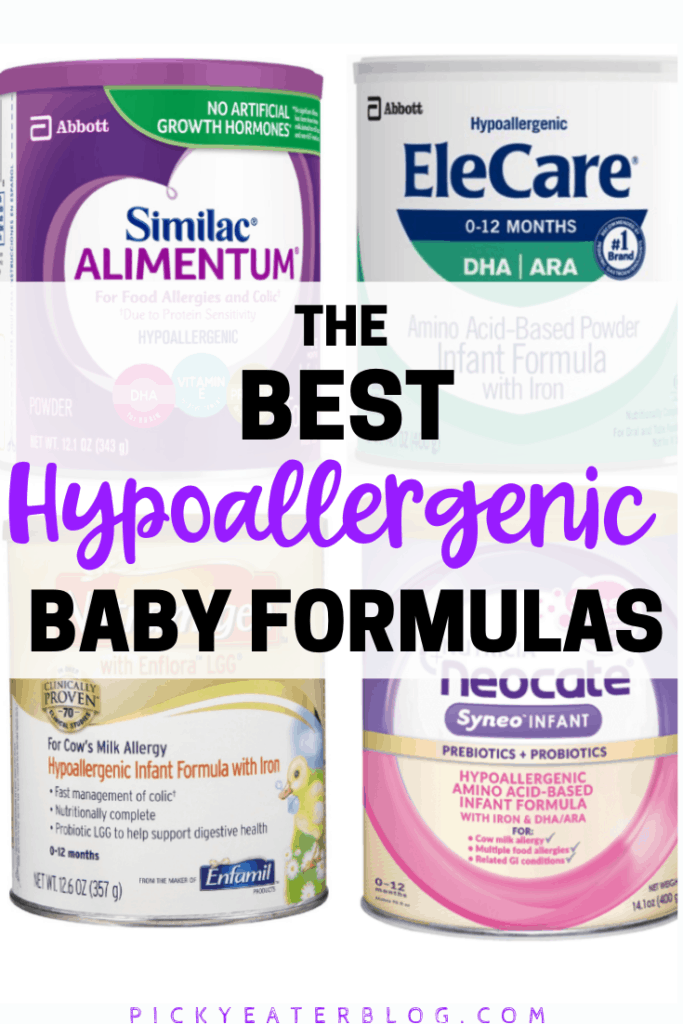

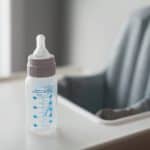
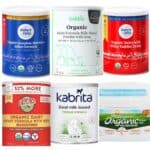




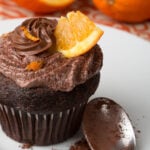
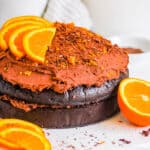
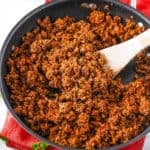
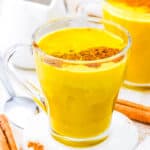
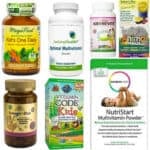
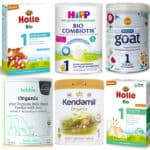



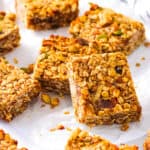



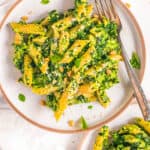
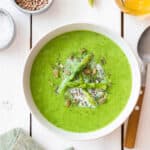

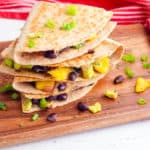


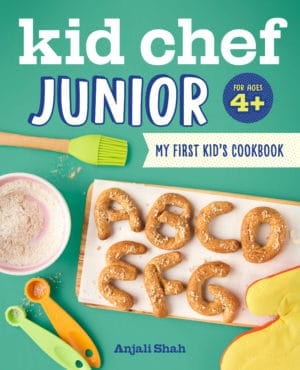


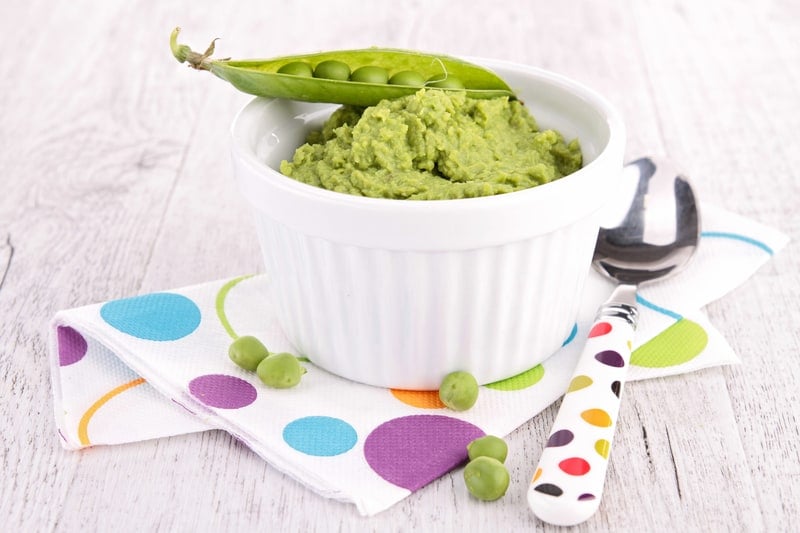
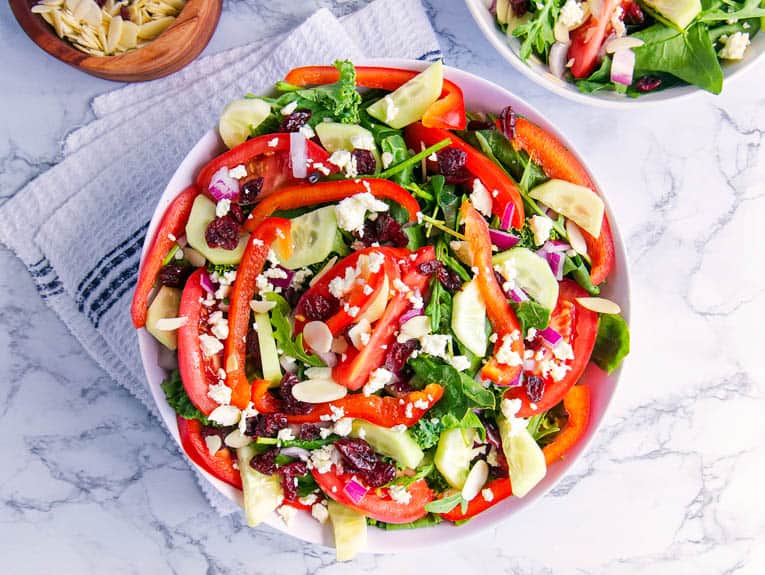


Thanks for the article. Super helpful! I’ve been looking for a European alternative to Nutramigen or Alimentum for the reasons you have summarized. What are your thoughts on Pepticate? My little one unfortunately still has CMA symptoms on HIPP HA (going to try HIPP Comfort too).
Hi Sam! Pepticate is a decent option! It doesn’t have corn syrup solids and is better than Nutramigen / Alimentum in terms of those types of ingredients. If your pediatrician is supportive of using Pepticate, I’d say it’s worth a try! Hope that helps!
Thank you for making it easier for us Mommy’s to choose the best formula.
I just bought Hipp Ha Pre.
Since it’s in German I requested English ingredients and saw an ingredient that I read wasn’t healthy. Mono and diglycerides; is it bad to have this ingredient in baby formula?
Hi Celina! Mono and diglycerides are emulsifiers – they help keep the fats from separating in the formula. The European Union, which has very strict regulations for infant formula, have approved this ingredient to appear in HiPP HA and HiPP Comfort. For hypoallergenic formulas, because they have to remove a lot of the milk proteins and fats, they have to add in other fat sources, and without emulsifiers I don’t think the formula would mix well or have the shelf life it has. US based hypoallergenic formulas may not use mono/diglycerides but they will use a ton of corn syrup solids to achieve the same effect (e.g. Nutramigen – the comparable to HiPP HA/HiPP Comfort) uses 47% corn syrup solids to account for the removal of milk proteins/fats from the formula. So it’s really just a question of which ingredient you dislike more – since no hypoallergenic formula is going to have the ideal ingredients list. If it were my baby, I’d choose mono/diglycerides over corn syrup solids, but you have to make the choice you feel most comfortable with! Hope that helps!
My son, after four months got a rash all over his body, his face and we tested his stool for blood and it came back positive. They switched us to either Similac Alimentum or Nutramigen. I didn’t like ingredients in either of them but Similac seemed like the better choice of the two. I’m still not happy after a week with my son being on this formula with these ingredients. I’m really looking into European formulas. Your post has been the best help and I appreciate it so much. I’m deciding whether I want to go with hipp HA or the comfort. After going on the Similac, he is spitting up more where he wasn’t before and I feel like possibly the comfort would be the better route and to be on the safe side?
Hi Daniella! Yes, I think given your son’s symptoms, HiPP Comfort would be best because that’s the most broken down of the European hypoallergenic formulas. Make sure your pediatrician agrees with that as well before starting the new formula! Hope that helps, and I hope you find something that works for him soon!
Hi.
My baby since birth was taking 1 bottle at night of Kendamil. Once he was 3 months he started getting eczema on his back and face. I think switched to hipp ha pre and it went away in 3 days but then on day 6 was back way worse than I have ever seen it. His eye was puffy red and blood shot as well. Today I started nutrimigen because I can’t figure out what to put him on European wise. I’m not sure if it’s a cow milk allergy or the lactose allergy. Any feedback would be appreciated.
Hi Bianca! I’m so sorry your baby has had such a hard time with formula overall! That sounds very stressful! Have you talked to your pediatrician about this? It sounds like your baby might have an actual severe cow’s milk protein allergy, in which case HiPP HA pre may not be hydrolyzed enough (broken down enough) for him to digest properly. The European hypoallergenic formula options are great, but they are not as broken down as Nutramigen or the amino acid formulas in the US, so for babies with severe allergies, you have no choice but to use the US versions. I would ask your pediatrician if they think your baby has CMPA and if so, whether Nutramigen is the right choice or if you need to go to an amino acid formula like Elecare or Neocate. Hope that helps and I hope you find something that works soon!
This article has been a lifesaver for me! My baby turns 6mo next week, I need to find a HA formula and hate all the US options. If the HIPP HA 2 is sold out everywhere (that’s what it looks like online), is it okay to give the HA 1 even though her age would say to do 2?
Hi Caitlin! I’m so happy to hear that this post has been helpful for you! If your pediatrician is ok with it, then it should be fine to give her HA1 until HA2 is back in stock. My pediatrician said it was fine for my kids to stay on Stage 1 formula until about 8-9 months of age – so if your pediatrician agrees then it should be ok! Hope that helps!
My baby is 5 months old and until now has been primarily breast fed with Hipp HA as a supplement. I am going back to work and am trying to move her to full formula but Hipp HA has been giving her bloody stool with full bottles, despite being fine with the supplementing. I would like to try Hipp Comfort but notice there are not details on the age range. Is Hipp Comfort good for babies up to 12 months? If not, what would you consider as a next formula? I would hate for Hipp Comfort to work, only to find out it’s only good for up to 6 months old.
Hi Jacque! HiPP Comfort can be used with babies up to 12 months. They recommend up to 6 months on the packaging, because they assume that babies will grow out of their intolerances by about 6 months (typically colic, gas, constipation decrease once babies start solids). But when my kids were little, my pediatrician told me that they could use HiPP Comfort up to 1 year of age, so if your pediatrician agrees with that and is comfortable with that, then you should be able to use HiPP Comfort until she’s 12 months old! Hope that helps!
Hi, thanks for this resource! My 6 weeks old was very fussy with breast milk – lots of crying during feeding and spits up a lot. The doctor diagnosed Reflux and recommended trying Alimentum/Neutramigen. He’s been a little better on this regimen, but still spitting up a lot. Do you know of any hypoallergenic formula that’s also thickened for reflux? Thank you!
Hi Neil! HiPP AR is designed for reflux and is thicker than other formulas, however it’s not technically a hypoallergenic formula (e.g. no reduced lactose/modified fats/hydrolyzed proteins). HiPP HA is a hypoallergenic formula but isn’t thickened, although I have heard it’s slightly thicker than regular formula. I don’t know of a formula that combines both unfortunately, but you could try HiPP HA to see how your baby does on it and see if the spitting up improves! Or you can ask your pediatrician whether they think HiPP AR will work even though it doesn’t have hydrolyzed milk proteins. Hope that helps!
My son tried hipp ha2 for two months because he has eczema. And it’s getting better now! But hipp ha2 is out of stock now, what kind of formula can instead of that? I’m in Canada, do you think nutramigen or enfamil or gentlease isa good idea? I was tried nutramigen today but he doesn’t like it! How about hipp comfort? Thank you for your reply!
Hi Heather! I would try HiPP Comfort and see how he does (assuming your pediatrician is ok with that!) Otherwise, yes, your only option would be to go to Nutramigen or Alimentum — there just aren’t many other hypoallergenic options available unfortunately! I hope you find something that works soon!
Thank you very much! I have one more question, if I change the formula, can I switch it directly or I need mix them half to transition? Thank you
Hi Heather! I’d switch the formula slowly / gradually over a period of about 7 days, where you slowly increase the new formula and decrease the old one each day. Hope that helps!
What do you think of SMA althera and aptamil Pepti? It looks like Althea is 100% hydrolyzed whey and has lactose as the main ingredient. I couldn’t find any informational on Aptamil pepti – but was wondering what are your thoughts on these alternatives?
Hi there! I haven’t found concrete information on how hydrolyzed either of these formulas are, or where to purchase them to get them shipped to the US, which is why they’re not included in this post! I agree the ingredients for SMA Althera look pretty good (it has maltodextrin but no other added sugar) – but I couldn’t find a definitive statement that it is 100% hydrolyzed. Aptamil also has pretty good ingredients (no added sugar), but again I couldn’t find any information on how hydrolyzed it is. Hope that helps!
Hi, my son has CMPA and I have been mostly breastfeeding him with one feeding of HIPP HA. Now he is turning one year old soon and I am wondering if you know one of the European brand has a stage 3 option? He is allergic to soy and oats too 🙁
Hi Vienna! I don’t think there are any European brands that create a Stage 3 hypoallergenic option unfortunately! However, if your pediatrician is ok with it, you could transition him to plant based (non dairy) milk after the age of 1, especially if he is doing well on solid foods and eats a variety of foods! So I’d ask your pediatrician if your son even needs to be drinking formula after the age of 1 and go from there. Hope that helps!
Thank you for your reply. A follow up question, what’s the downside for toddler to drink “baby formula”. I am evaluating the nutrition between HIPP HA 2 and Almond Milk (he is allergic to soy and oats), wouldn’t it be more beneficial to pick HIPP HA2 and supplement Calcium?
Hi Vienna! This is a better question for your pediatrician as they know your child, can evaluate them in person, and has access to all of their health information to determine whether that’s the best course of action. There are actually some high protein organic almond milks that are great for kids if you’re worried about the protein and additional nutrients, but again I would just ask your pediatrician whether to stick with formula or move to almond milk for your toddler!
Hi!
My daughter has a milk protein allergy and a soy allergy, are both HiPP HA and Comfort soy free?
Hi Caroline! HiPP HA and HiPP Comfort don’t contain soy on the ingredients list, but I don’t know if they are made in a facility where soy is used (e.g. I don’t know anything about whether there is a potential for cross-contamination). On their website they do say: “Free of harmful additives including added sweeteners, corn syrup, maltodextrin and soy.” so I think you could be ok? You might want to call them to triple check if her allergy is severe though!
Hi! My pediatrician recommended trying nutramigen because my baby has bad reflux, could you please suggest what the equivalent European formula would be. Im considering European because of cleaner ingredients – Thank you!
Hi Sarah! You can try HiPP AR which is a European formula specifically formulated for reflux, but it’s not hypoallergenic the way Nutramigen is (HiPP AR doesn’t have broken down milk proteins or reduced lactose the way Nutramigen is). There is also HiPP HA and HiPP Comfort — and both of those formulas have hydrolyzed milk proteins like Nutramigen, and HiPP Comfort also has reduced lactose, but HA & Comfort are only 86% hydrolyzed, and Nutramigen is 90%+ hydrolyzed. There isn’t a 100% comparable European formula to Nutramigen for that reason. So if your pediatrician is supportive of you trying one of the European formulas first, go ahead and try one of the ones I’ve listed here, but if your peds is adamant that Nutramigen is the best solution for your baby, then I would just go with that. I hope that helps!
Hi, i noticed you didnt mention Aptamil pepti or Sma Althera. Was these included in the screening, and basically just subordinate to them all?
Many thanks
Hi Mica! Thanks for reaching out! I didn’t include either of those formulas because I believe they are only available via your pediatrician for kids in the UK (exclusively). So I wanted to present options that are actually available for anyone no matter where they live. But I would say both Aptamil and SMA are comparable to HiPP HA or HiPP Comfort – they are not organic, but they also don’t include any corn syrup solids other less-desirable ingredients that some of the hydrolyzed formulas in the US contain. Hope that helps!
Hi, I really hope you can give me some insight. My little boy has eczema and I’m wondering whether a comfort formula would help as opposed to going down the extensivly hydrolysed route. I’ve been looking at Kendamil Anti Colic(comfort) and Hipp comfort. Is one of them more hydrolysed than the other? Any insight to these would be so appreciated.
Hi Denise! From what I’ve heard HiPP Comfort is way more hydrolyzed than Kendamil Anti Colic. HiPP Comfort is 86-87% hydrolyzed with reduced lactose and modified fats. Kendamil Anti Colic I believe also has reduced lactose, but is only 14% hydrolyzed. Hope that helps!
Hi there! My baby had bloody stools on the Hipp HA formula. Do I understand correctly that the Hipp Comfort may be a good alternative? The only formula she hasn’t reacted to is Alimentum, but with the current shortage, we have been unable to purchase it.
Hi Parker! Potentially, yes, HiPP Comfort may end up being better for your baby if she didn’t react well to HiPP HA, since HiPP Comfort is more broken down than HiPP HA is (it has reduced lactose and modified fats in addition to the hydrolyzed proteins that HA has). You won’t know for sure if Comfort will work until you try it, there’s no real way to tell ahead of time unfortunately. So if your pediatrician is supportive of you trying it, then go ahead and see if HiPP Comfort works better for her!
Hi Parker, I’m responding to you directly because my baby has not had a great reaction to Alimentum and it was the only one I could find due to the current shortage. I found HIPP HA PRE and he has been doing great on that, but as a result I’ve got several 32 oz ready to feed bottles of Alimentum and I would love to donate them to someone in need. Please let me know if that would help and feel free to email me at kriupa.samson@gmail.com. I am located in NY and would be happy to send it out to you if you’re in the US.
Thank you so much Kriupa! That is very generous!
Hi Kriupa! We have been on the Alimentum ready to feed for over a month with no issues from the shortage until recently. These last 2 weeks it has been impossible to find. We have tried to use Nutramigen but she has a terrible reaction to that as far as discomfort. If you still have these bottles, I would pay for the cost in addition to shipping. We also have HiPP Stage 2 on the way so hopefully we have better luck with that stuff.
Hi Jenn! I’m just approving this comment in hopes you and Kriupa can connect! Hope you’re able to get the formula you need!
Hi, my baby drinks hypoallergenic baby formula. He used to drink Nutramigen but now with the formula shortage I have been switching him to whichever hypoallergenic formula I could find. I wanted to switch him to Europen formulas, but his pediatrician said not to do that since how he formulas are transported here is not regulated. Is there any way to make the formulas are what they are claimed to be and that they are transported safely?
Thank you!
Hadas
Hi Hadas! The distributors I list in my post all meet the quality guidelines for transporting formula safely and never sell counterfeit formula. Personally, I would feel comfortable ordering from any of them and I have actually ordered from all of them and used their formulas for my kids. That said, that is my personal opinion and I would never advise you to go against what your pediatrician says. You should feel comfortable with whatever decision you make! If you don’t feel comfortable with European formulas and your pediatrician is not supportive, you probably should stick to the hypoallergenic formulas available in the US. Hope that helps!
I just bought the hipp HA PRe but my 2 month baby didn’t like it at all I’ve trying so hard he drinks it but unfortunately he refuses I don’t know if it is the taste because his face says everything and almost vomit.
Are all these tastes the same?
I do really want to try another hypoallergenic European which are supposed the cleanest
Hi Jennita! I’m sorry to hear your baby didn’t like the taste of HA PRE! All hypoallergenic formulas taste slightly different from one another, but in general, none of them will taste like breastmilk or like regular formula because the milk proteins have been broken down, and that produces a very distinct taste. You could try HiPP Comfort, but that’s even more broken down than HIPP HA PRE so he may not like that either. If your pediatrician approves, you could try mixing the HA formula with a regular formula to see if that helps him transition to it better – but don’t do that without talking to your pediatrician first! Hope that helps, let me know if you have any other questions!
My grandson was born with Nec and has been exclusively on Puramino infant formula, after trying a few others that upset his stomach at birth. He is now 8 mos. old and my daughter has been unable to find Puramino formula anywhere. I don’t know why there is now apparently a shortage of this formula; but what can she give him in the alternative, that will not upset his stomach?
Or can you tell me where I can locate Puramino infant formula, whether in store or online? We live in Las Cruces, NM. Thank you.
Hi Rosanne! Thank you for reaching out! It looks like Puramino is an amino acid based formula, so the comparable options would likely be Neocate or Elecare. The problem is — many of these formulas were recalled which might be why you can’t find Puramino anywhere either! I would talk to your grandson’s pediatrician to figure out what alternatives might work for him – feel free to show his pediatrician my list of options to help you choose!
I’m here in Las Cruces as well … There’s no amino acid based formulas in a hundred mile radius…. I’ve tried El Paso and Albuquerque. I’m going to Phoenix next…this is CRAZY. I ordered a few alternatives already, she seems to be tolerating low lactose formulations….I just don’t want to use Soy based, which is the only thing available in the area.
I’m so sorry to hear that Annie!! I know the formula shortage is insane right now and has been so stressful for so many families. If you have any questions that I can help with, please let me know!